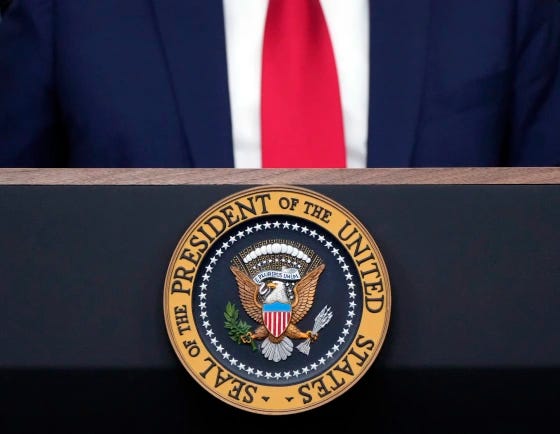Trump's Tough Diplomacy Could Push U.S. Allies Closer to China
From Canada to Panama, Trump’s hardline tactics with long-standing U.S. partners may drive them into China’s arms.
WASHINGTON — Former President Donald Trump’s brash approach to foreign relations may have inadvertently placed U.S. allies in the uncomfortable position of reconsidering their alliances and seeking ties with China.
Throughout his presidency, Trump took a tough stance with several countries that have traditionally been U.S. allies. From pressuring Canada, to causing friction with Denmark over Greenland, to threatening Panama over the future of its canal, Trump’s actions have raised concerns about the long-term effects on America's global relationships.
Among the countries impacted, Panama has been labeled a “democratic partner” by the U.S. State Department, and Colombia worked closely with the U.S. on counter-narcotics strategies during both Trump and Biden’s presidencies. Yet, under Trump, Panama faced threats regarding its control over the Panama Canal, while Colombia endured harsh ultimatums regarding the deportation of undocumented immigrants.
In addition to imposing tariffs on Canada and Mexico, Trump’s rhetoric targeted longstanding allies like Colombia and Panama, painting them as unreliable partners while claiming U.S. interests were being taken for granted. Canada, once a staunch ally during the Afghanistan war and 9/11 crisis, felt the sting of a 25% tariff, and Trump even suggested Canada might as well become the 51st U.S. state.
Leslie Vinjamuri, director of the U.S. and Americas program at Chatham House, noted the risks of such tough diplomacy, explaining that small, largely pro-American countries might look to more stable and lucrative options like China if they feel abandoned or antagonized. "This could drive nations toward strategic competitors, as they no longer view the U.S. as a reliable partner," she said.
At the core of Trump’s foreign policy was his desire to project strength and a "tough guy" persona, appealing to Americans who felt the country had been exploited by others. Trump’s supporters argue that his policies were necessary to reinvigorate U.S. influence globally, showing both allies and adversaries that the U.S. was no longer a passive power.
However, as U.S. relations soured, China eagerly positioned itself as a potential partner to countries like Panama and Colombia. After Trump’s threats regarding the Panama Canal, Panama’s government reversed its previous refusal to engage with China and agreed to talks. Similarly, China’s ambassador to Colombia made clear his country’s desire to deepen ties, just hours after Trump imposed sanctions on Colombia over deportations.
Arturo Sarukhan, former Mexican ambassador to the U.S., warned that Trump’s “my way or the highway” approach risks pushing countries further into China’s embrace. Over the past decade, many nations have strengthened their ties with China, and Trump’s hardline policies may further accelerate that shift.
While Trump’s defenders argue that his stance was a necessary rebuke to countries taking advantage of the U.S., critics suggest that his tactics may have only worsened global resentment. With allies now weighing their options, many believe that China could be ready to take advantage of the growing diplomatic divide, offering an alternative that might prove irresistible to countries seeking more predictable relations.
In the case of Colombia, tensions over the deportation of undocumented immigrants initially threatened to spark a trade war. However, despite the drama, Colombia ultimately agreed to continue repatriation flights, and no significant change in policy occurred. The incident underscored the lack of necessity for such high-stakes diplomatic gambits, with some experts suggesting that the crisis was largely manufactured for headlines.
Senator Chris Murphy, D-Conn., who sits on the Foreign Relations Committee, dismissed the Colombian dust-up as “fake drama,” noting that flights had already been taking place before the diplomatic row.
Despite such assertions, it remains clear that Trump’s approach to foreign relations may have long-lasting consequences, particularly in the context of U.S.-China competition for global influence.


